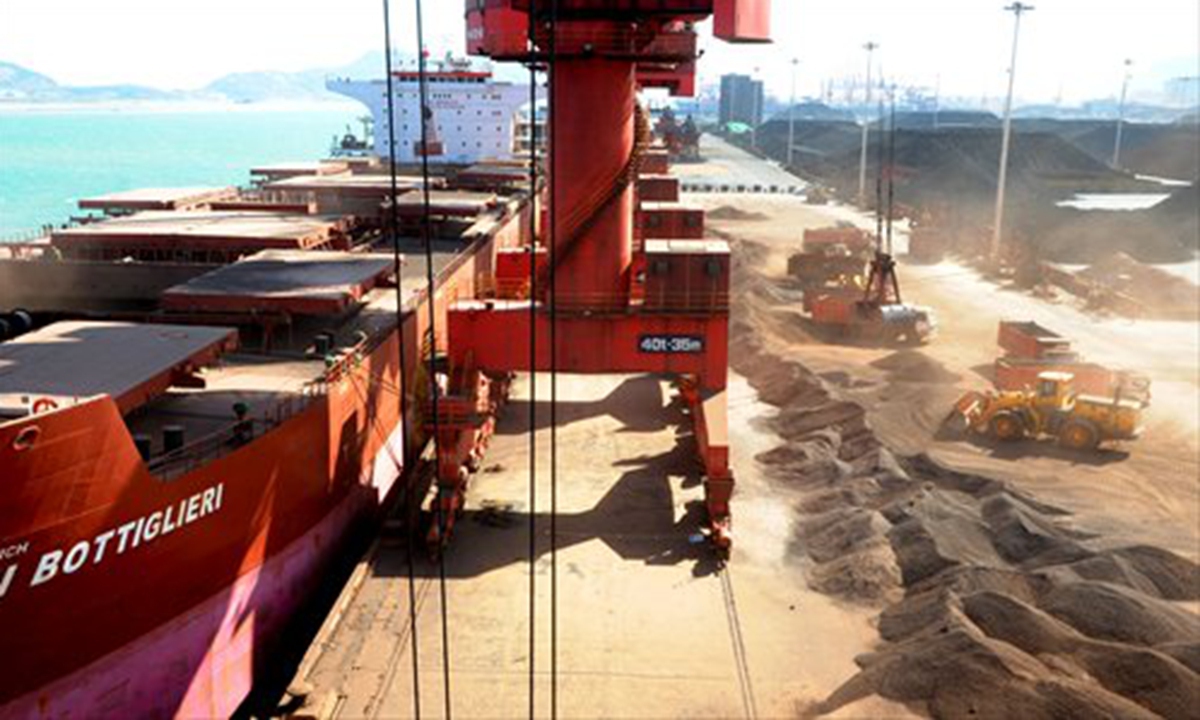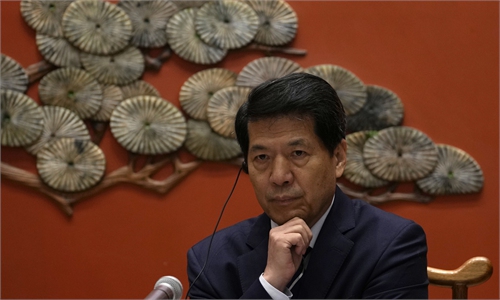Reported UK attempt to break 'dependence' on China for key minerals impracticable: experts

A ship unloads rare-earth metals at the port of Lianyungang, East China's Jiangsu Province. Photo: IC
The UK government's reported attempt to break dependence on China for key minerals needed for wind turbines and electric vehicles is impracticable and may have an impact on its green transformation, Chinese experts said.
British battery metal refiners and electric car factories are being handed cheap power deals by the government as part of a battle to cut the West's dependence on China, the British media outlet The Telegraph reported on Sunday.
Companies will get the energy relief from next month with the aim being to boost domestic production of the corresponding key minerals, the report said.
From a geopolitical perspective, the reported approach taken by the UK aligns with the US Inflation Reduction Act and the EU Critical Raw Materials Act, a protectionist government-led move aiming to expand domestic supply and processing capabilities in critical sectors to enhance economic resilience, Chinese experts said, noting that geopolitical considerations are at play in these initiatives.
The UK's move targets specific issues related to China, which reflects the UK's geopolitical motivation, Yang Chengyu, an associate research fellow at the Institute of European Studies of the Chinese Academy of Social Sciences, told the Global Times on Monday.
As for the effectiveness of the UK's move, Yang said that since the critical minerals industry involves a lengthy supply chain, and the UK is not rich in mineral resources, the country may ultimately rely on imports from China.
China is the world's largest importer of cobalt ores and concentrates, accounting for 91 percent of the global import volume. By importing upstream products, it has become the world's largest producer of refined cobalt, according to media reports.
China also possesses mature industrial chains and technologies for the extraction and processing of nickel and lithium, among many other key mineral resources. These are crucial elements for green energy products such as batteries for electric vehicles.
China currently accounts for more than half of the world's rare-earth production, making it the largest producer in the global market, where its dominance is quite evident, according to media reports.
While acknowledging China's importance in world supplies of the minerals, The Telegraph report said, citing government officials, that the dependence on China "could threaten supplies during geopolitical crisis."
These so-called concerns are unfounded, and the reported actions taken based on such assumptions might go against market trends, Zhou Mi, a senior research fellow at the Chinese Academy of International Trade and Economic Cooperation, told the Global Times on Monday.
The British government's new power subsidies are part of a wider package being offered to energy-intensive manufacturers under the Government's British Industrial Supercharger scheme, which was consulted on last year, The Telegraph reported.
Combined with other measures, it will slash the price companies pay for electricity dramatically, according to the report.
The potential decrease in electricity costs in mineral smelting may not offset the challenges that the UK faces due to high labor costs and a lack of necessary supply chains for relevant industries, Zhou further noted.
Chinese experts said that the question of whether the UK can establish a complete industry chain from overseas mining rights to domestic refining in a short time is also doubtful.
"The UK faces issues of industrial hollowing-out, which raises uncertainties about its execution capability over the matter," Yang said.
In addition to the high cost of electricity that hinders the development of manufacturing industries in the UK, the country faces numerous other challenges, such as the inability to quickly reduce labor costs and uncertain factors related to environmental policies and local government responsiveness over the matter.
Therefore, the ultimate outcome of this move is still uncertain, while the ultimate cost of the transition may fall on UK consumers, said Yang.



